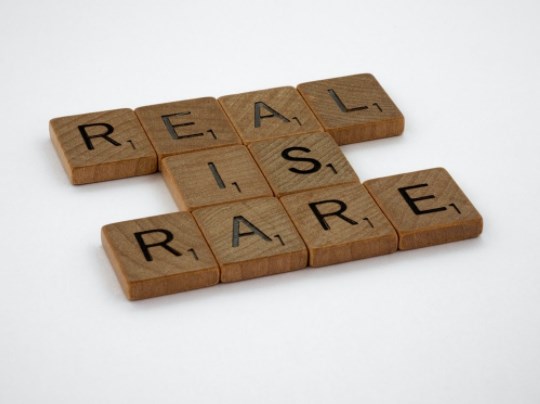In a world driven by social media imagery and personal self-expression, the desire to look and feel our best is more pronounced than ever before. From minor enhancements to major transformations, cosmetic procedures offer a diverse range of possibilities. Take, for example, innovations like Austin CoolSculpting, which provides non-invasive fat reduction, offering a testament to the lengths the industry has reached. But while the physical benefits of these procedures are often readily apparent, the emotional and psychological effects are more nuanced. This article delves into the profound impacts of cosmetic interventions on an individual’s mental well-being.
Table of Contents
The Desire for Aesthetic Enhancement: More Than Skin Deep
When considering cosmetic procedures, it’s easy to dismiss them as superficial endeavors. However, this perspective doesn’t account for the deeply rooted human inclination towards self-improvement and the aspiration to meet personal and societal standards of beauty. Historically, humans have used various means, from makeup to jewelry, to enhance their appearances. Today’s cosmetic procedures are just the modern-day extensions of this age-old practice.
But what drives this inclination? Biologically speaking, humans are hardwired to respond positively to symmetrical features and certain proportions, associating them with health and reproductive fitness. Psychologically, there’s an undeniable correlation between our external appearance and our internal self-worth. When we perceive ourselves as attractive, it often leads to increased confidence, self-assurance, and overall happiness.
The Emotional Ripple Effect of Cosmetic Procedures

Once deemed the preserve of the rich and famous, cosmetic procedures have now become accessible to a broader demographic, thanks to technological advancements and the democratization of beauty standards. As a result, many are turning to these interventions to address longstanding insecurities or to rejuvenate areas of their bodies affected by age, weight fluctuations, or genetics.
- Enhanced Self-Esteem: A primary emotional benefit reported by many post-procedure is a heightened sense of self-esteem. The ability to change a feature that an individual was previously insecure about can lead to a newfound appreciation of oneself. For many, this renewed confidence becomes a springboard, spurring them to take on challenges or opportunities they may have previously shied away from.
- Alleviation of Mental Health Issues: It’s important to note that cosmetic procedures are by no means a cure for mental health issues. However, in some cases, addressing a particular physical concern can alleviate associated mental stress. For instance, someone with severe acne scars may experience social anxiety or avoid social situations altogether. Post-procedure, the reduced visibility of these scars can potentially mitigate these feelings, enhancing social confidence.
- Empowerment and Autonomy: In today’s world, personal autonomy is prized. For many, the choice to undergo a cosmetic procedure is a declaration of their agency over their bodies. It’s about taking control and making decisions that align with their personal vision of beauty. This sense of empowerment can translate into other areas of life, reinforcing an individual’s belief in their capacity to effect change.
The Balancing Act: Risks and Rewards
While there are undeniable benefits to cosmetic procedures, it’s essential to weigh them against potential risks. No procedure, however minor, is without its challenges.
- Potential for Unmet Expectations: An integral part of the pre-procedure phase is managing expectations. Despite the best efforts of surgeons and the advancements in technology, there’s always a chance that the results may not align perfectly with an individual’s vision.
- The Mental Health Question: While many find increased confidence post-procedure, there are instances where individuals, particularly those with pre-existing mental health issues, may not find the solace they were seeking. It’s crucial for practitioners to recognize this and ensure patients have access to psychological support both before and after the procedure.
- Physical Risks: As with any medical intervention, there’s always the potential for complications, from infections to reactions to anesthesia. Ensuring you’re in the hands of a qualified practitioner and understanding all potential risks is paramount.
Making Informed Choices
Given the profound emotional and psychological effects (both positive and negative) of cosmetic procedures, the decision to undergo one should never be taken lightly. Potential candidates should be thoroughly informed, not just about the procedure itself but about the broader implications on their mental well-being.
Here are some guidelines to consider:
- Research Thoroughly: Knowledge is power. Ensure you understand the procedure, the risks involved, and the potential outcomes.
- Consult a Professional: Engage with a reputable practitioner who can guide you through the process, managing expectations and ensuring you’re making a choice that aligns with your broader well-being goals.
- Consider Psychological Counseling: Before undergoing a procedure, consider engaging in counseling or therapy. This can provide a clearer understanding of your motivations and ensure that your reasons are rooted in a desire for self-improvement, rather than external pressures.
The Psychological Underpinnings of Cosmetic Choices
Understanding the motivations behind why individuals opt for cosmetic procedures is crucial. Often, it is a mix of personal, societal, and even evolutionary factors. We live in a world where first impressions often rely heavily on visual cues. The way we present ourselves can affect everything from professional opportunities to personal relationships. In a world increasingly influenced by visual mediums like Instagram, TikTok, and YouTube, these choices take on even more significance.
Psychologists posit that our self-perception plays a critical role in our daily interactions. It influences how assertive we are, how we approach relationships, and even how we tackle challenges. Consequently, anything that can impact this self-perception, including our appearance, can have far-reaching implications.
Social Media and the Modern Beauty Paradigm
In the era of filters, edits, and digital touch-ups, the standard of beauty presented on social media platforms can sometimes feel unattainable. This new digital age beauty paradigm has significantly amplified the desire for perfection. While these platforms allow for self-expression and connectivity, they can also be a double-edged sword, frequently fostering unrealistic beauty ideals.
On the one hand, social media offers representation, showcasing diverse beauty from around the globe, and breaking many traditional beauty norms. On the other hand, the constant bombardment of “perfect” images can lead to feelings of inadequacy and prompt individuals to seek out cosmetic procedures in hopes of achieving these ideals.
Beyond Aesthetics: Medical and Restorative Procedures
It’s a misconception to assume that all cosmetic procedures are pursued solely for vanity. Many procedures have therapeutic, restorative purposes. For instance, breast reconstruction after mastectomy or scar removal after an accident can have profound effects on a person’s psychological healing process.
By restoring a semblance of their former selves, these procedures can aid in the mental recovery of trauma survivors, allowing them to regain a sense of normalcy and control. The boost to their self-esteem and the mitigation of traumatic reminders can be pivotal in their overall healing journey.
Embracing Beauty in All its Forms
In conclusion, the relationship between cosmetic procedures and mental well-being is multifaceted. For many, these interventions offer a pathway to enhanced confidence, self-esteem, and empowerment. They become tools in an individual’s arsenal, aiding them in their journey to self-acceptance and actualization.
However, as with all tools, it’s how they’re used that determines their value. As society continues to evolve its understanding of beauty, it’s essential for each individual to define what beauty means to them personally. Cosmetic procedures can indeed play a role in this journey, but they should be approached with care, understanding, and a commitment to one’s broader well-being.




